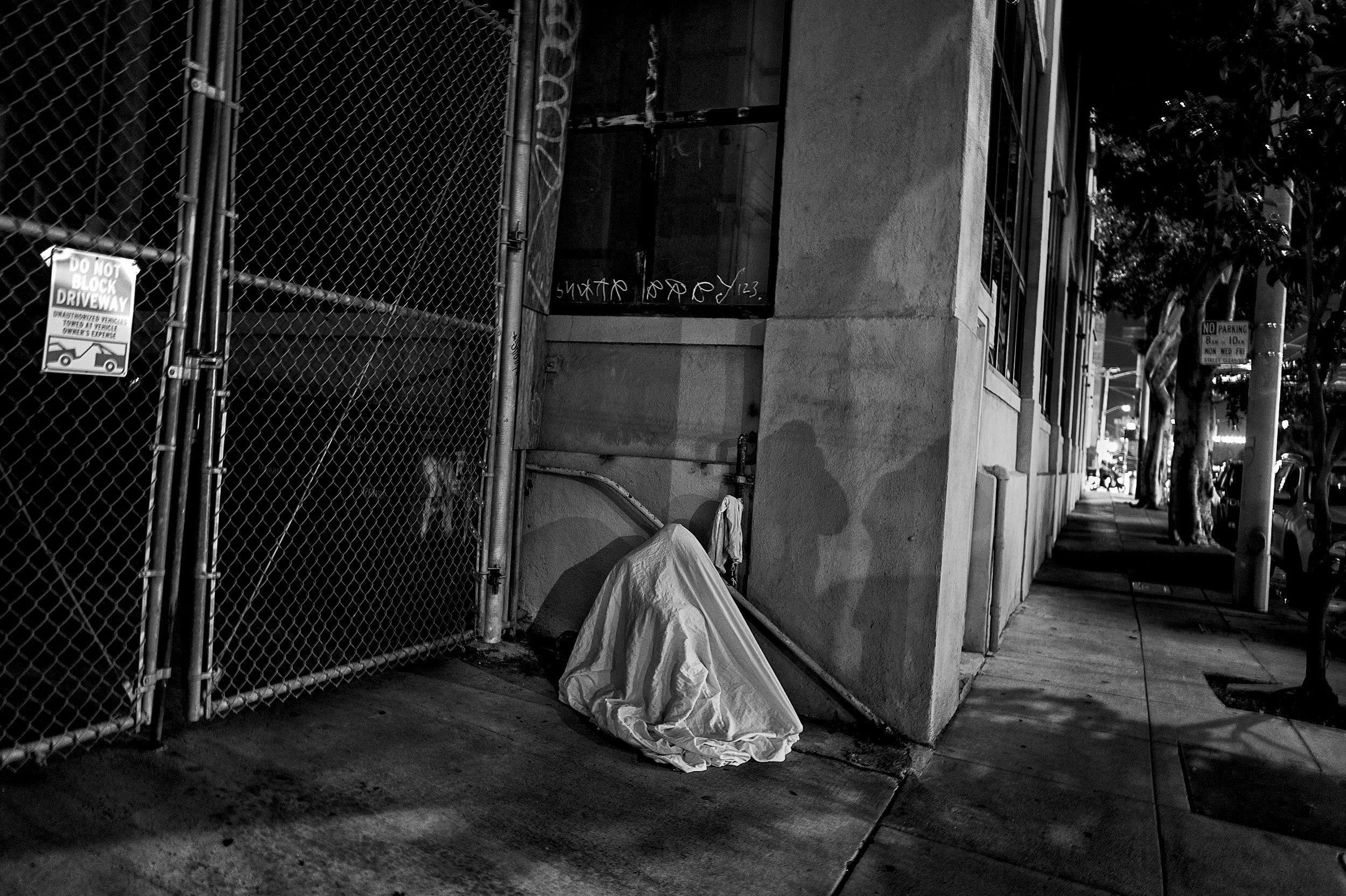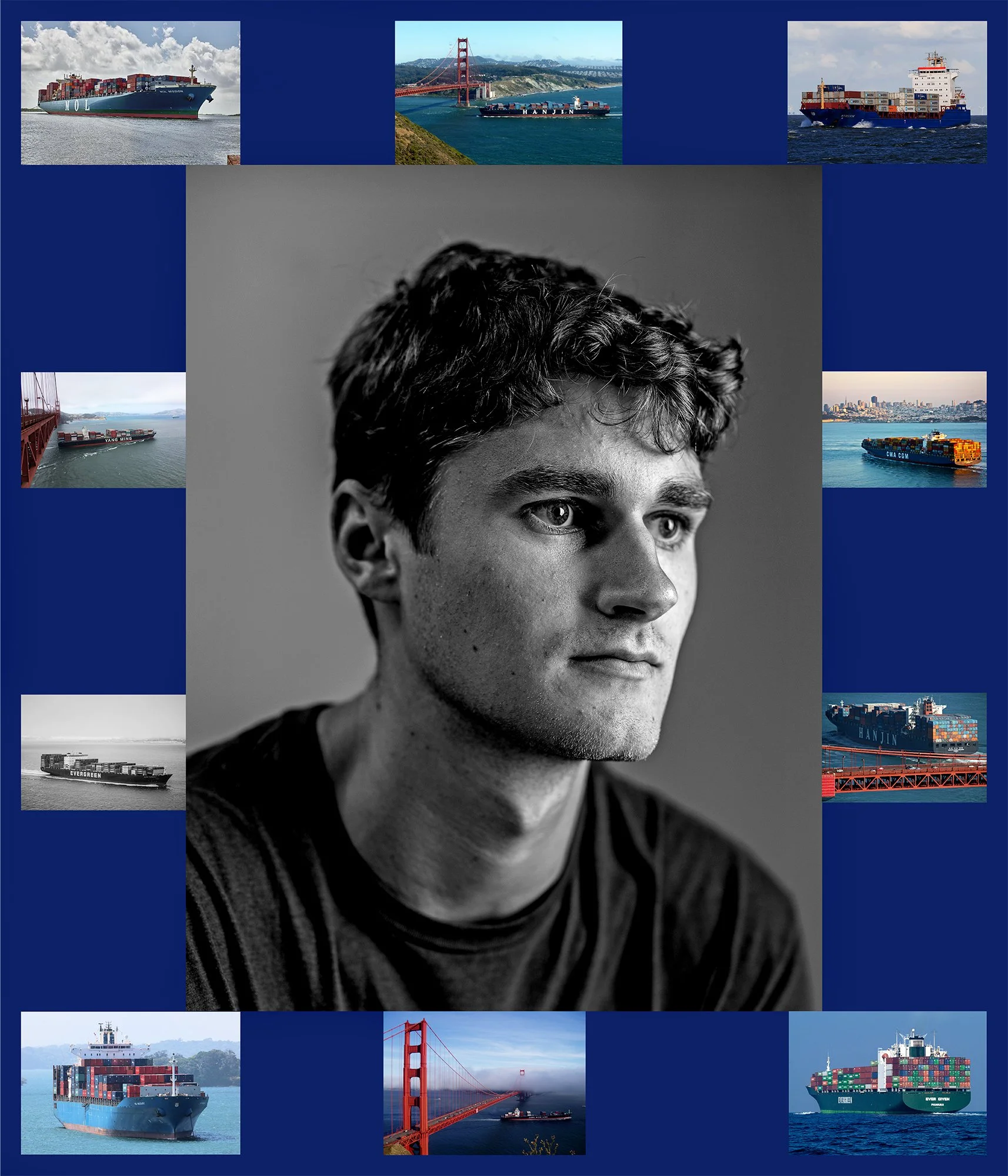Maybe This Week, Maybe Next Week
23 December 2025
Evita Adriano, new “From the MMP Hiring Hall”. Read her thoughts of the mariner’s life here: https://robertgumpert.com/mmp/from-the-mmampp-hiring-hall
Photo: Robert Gumpert 1 December 2025
Tree in backyard. Photo: Robert Gumpert 19 December 2025. Christmas tree in the Ferry Building, San Francisco. Photo: Robert Gumpert 20 December 2025
Port of Oakland area. Oakland, California. Photo: Robert Gumpert 15 December 2025
The San Francisco Bay Bridge from the SF/Oakland ferry. Photo: Robert Gumpert 15 December 2025
Readings, Viewing, Listening for parts the End of December 2025
The Eerie Story of Low Background Steel - The Material World
After 150 Years, California’s Sugar Beet Industry Comes to an End - Caroline Tracey - Civil Eats
The Daily Heller: 150 Years of Iranian Graphic Design - Steven Heller - Print
Can visual journalism help to save democracy in the United States? - Fred Ritchin - Notes of a MetaPhotographer
Aperture’s Must-Read Features of 2025
Remembering the riotous heyday of Asbury Lanes - Jon Coen, Photos: Mike McLaughlin - Huck
Daytime, headphones, no booze involved: How a generation is saying ‘no’ to club parties - Lucas Barquero - El País
Amira’s Castle and Maen Hammad, 2025 W. Eugene Smith Fund Grant Recipient - Maen Hammad
Stefanos Paikos, 2025 W. Eugene Smith Fund Grant Finalist
Art Models Struggle for a Living Wage and Recognition - Isa Farhan - Hyperallergic
How long should a building last? - Nat Barker - dozen
271 - Rachel Elizabeth Seed - A Small Voice podcast
Black Photojournalism Episode 5: The South - Carnegie Museum of Art
Copies of “Division Street are still available! Order your copy from Dewi Lewis:
“Division Street” – Order from Dewi Lewis: Orders: U.S.A – Britain - Canada
14 December 2025
Claude Lane, between Bush and Sutter. San Francisco, California. 2 December 2025. Photo: Robert Gumpert
Sleeping rough with only light covering at the beginning of a cold night in San Francisco. For months the city has been conducting nearly continuous “sweeps”, leaving many with no alternative but to pare down their belongings to nearly nothing, find a place to lay after dark, wake at first light, and attempt to disappear. 3 December 2025. Photo: Robert Gumpert.
Christmas seems to come earlier and earlier every year. San Francisco, California. 3 December 2025. Photo: Robert Gumpert
Readings, Viewing, Listening
A Lagos exhibition celebrates Fela Kuti's defining sound - Chisom Peter Job - Wallpaper
The Design of Authority: How Design is Used to Control Behavior - Lynda Decker - Print
Climate action saves lives. So why do climate models ignore well-being? - Edited-Gaby Clark, Reviewed-Andrew Zinin - phys.org
When the world’s largest battery power plant caught fire, toxic metals rained down – wetlands captured the fallout - Ivano W. Alello - The Conversation
We asked people in prison to track their earning and spending, and bartering and side hustles — for 30 days. Their accounts reveal a thriving underground economy behind bars - Beth Schwartzapel - The Marshall Project
Black Photojournalism - Carnegie Museum of Art
How changing tattoo culture reflects a quiet shift in Japan - Ray Massaki - It’s Nice That
Inuuteq Storch set out to rediscover Inuit culture that was suppressed by Danish colonizers, by finding its traces in the everyday. - Dawn Chan - The New Yorker
‘Rebranded plantations’: how empire shaped luxury Caribbean tourism - Eleanor Shearer - Guardian
IZABELLA DEMAVLYS: WITHOUT A FACE | RICHARDS FAMILY PRIZE - Vicente Cayuela - Lenscratch
Framed and defanged: Steve McQueen’s Resistance - 1000 Words
How ethical is Google Street View, asks Jon Rafman in Copenhagen - Stephanie Gavan - Wallpaper
(Re)Connecting Communities, December ‘25 Updates - Adam Paul Susaneck - SEGREGATION BY DESIGN
#511 Stories Hidden Behind Locked Doors - Featuring Documentary Photographer Robert Gumpert (Yes me!- Neale James was curious about what I have been up to since 2021 and was kind enough to put our chat up on his site. Hopefully I had something interesting to say.)
Copies of “Division Street are still available! Order your copy from Dewi Lewis:
“Division Street” – Order from Dewi Lewis: Orders: U.S.A – Britain - Canada
December 07, 2025
Garden glove. Photo: Robert Gumpert 28 November 2025
Foggy morning on the San Francisco Embaracadaro. Swedish-American pop-artist Claes Oldenburg designed the 64-foot tall “Cupid’s Span” which landed on SF’s Embarcadero. in 2002. Photo: Robert Gumpert 8 November 2025
The USNS John Glen, an Expeditionary Transfer Dock, docked near Jack London Square, Oakland, CA. as seen from the ferry. Jack London Square in Oakland, California. Photo: Robert Gumpert 4 November 2025
San Francisco’s 105 year old fire station, a historic landmark at Pier 22 1/2, sits the new floating station. The new station with 3 fireboats, a dive boat and marine rescue craft, is better suited to the department's maritime needs and seismic challenges. Behind Photo: Robert Gumpert 29 November 2025
Readings, Viewing, Listening
The Converts, Simulating Iraq, In Training - Claire Beckett
Not in our name - Vincenza Falletti, edited Sam Haselby - Aeon
Patti Smith on the One Desire That Lasts Forever (podcast) - Ezra Klein
PHOTO PHNOM PENH FESTIVAL 2025 – 16TH EDITION
ICE Offers Up to $280 Million to Immigrant-Tracking ‘Bounty Hunter’ Firms - Dell Cameron - Wired
The hidden details in Turner’s “The Battle of Trafalgar” - Royal Museums Greenwich
Why Is Africa Feeding Us? - The Food Programme (podcast)
Maria Ressa: The information apocalypse is threatening democracy - The Interview (podcast)
Where the Waters Are Rough, a Fishing Town Confronts Trump’s Priorities - Anna Griffin Photographs and Video by Ruth Fremson - NYT
Why Your Kitchen Looks Like That - Rachel Wharton - NYT
OpenAI’s Sora Is Letting Teens Generate Videos of School Shootings - Sharon Adarlo - futurism
The Deepest South - Ana Lucia Araujo - Aeon
About Place: How Public Art Tells the Story of San Francisco - Max Blue - SF/Arts
Copies of “Division Street are still available! Order your copy from Dewi Lewis:
“Division Street” – Order from Dewi Lewis: Orders: U.S.A – Britain - Canada
29 November 2025
From the MM&P Hiring Hall
Nate Metcalf, 23. 3rd Mate
MM&P Hiring Hall - Oakland, California
06 October 2025
[I’ve been a member of] the Masters, Mates, & Pilots about a year and a couple of months. Counting the school ships [at sea] around 200 days.
I did a trip on one of the APL (American President Line) ships, and that’s about around 50 days. You hit LA, Oakland, and then Japan, Korea and China. That takes about 50 days.
..
My first couple of jobs I got out of the Seattle hall, but they were both on the “open board”, not out of Seattle, so I had to fly to the destination. At home I’m an hour away from the union hall, and all the ships in Seattle actually go into Tacoma, even further south. When you finish work at 1am, the last thing you want to do is driving an hour and half home. I’m lucky enough that my girlfriend lives in San Francisco, it’s way easier to drive San Francisco to Oakland. And there are more ships coming in, especially night mating. When the ships come into port for a couple of days we work the cargo at night, and on the weekends during the days, as well.
[My girlfriend] she’s not supper thrilled about that (months at sea). The union has pros and cons, especially when you’re an applicant, and (jobs) are kind of hit or miss. You get what you get, but you don’t have to take a job.
If you were on a strict schedule - 30-90 days on, 30-90 days off - you miss a lot of stuff. If you’re trading off with another person, you don’t have a lot of choice, someone’s going to miss Christmas. Someone’s going to miss Thanksgiving. Where as with the union I just off a ship for six months, and my vacation’s up I can still hang around. I don’t have to go back if I don’t want to [I can night mate, for instance].
Right now I’ve got a couple of weddings I have to stay around for, so I’m planning to night mate for the next couple of months. It’s a lot easier to night mate down here than it is at home.
It’s one of the big benefits of the union, but the girlfriend not exactly thrilled about me going out to sea.
Diffidently not the best industry to be in if you want the healthiest relationship. At least now a lot of ships have Starlink, or email, or internet. I can’t imagine the days before that.
..
[A good port for a sailor has] easy of transportation. A lot of times the docks are so far away you have to pay $100 for an Uber ride just to get to the city. It’s nice when a city has a closer terminal, but honestly I haven’t been off the ship that much. In foreign ports we’re in port for such a short time, sub 12 hours usually, it’s pretty hard to get off, especially on a container ship. Here some of the APL ships hangout for 2,3, 4 days at a time.
..
Documents! There’s a lot. You have to renew your credentials every 4 years, or whatever it is, and it was taking 3-4 months to get your credentials (from the Coast Guard). A lot of people will wait until the last second, and then you don’t have your credential and can’t sail. There are a lot and I keep them all in my backpack, and bring them all to the union whenever I’m trying to get the job. Especially for me, every job I’ve gotten with the union is a different company, it’s not like I can just log into my ADP (a ship’s computer Automatic Data Processing), and it transfers. Basically you have to start over again.
I always carry my passport, I got it stolen one time in my backpack. Yeah, I carry everything: my passport, my merchant mariner credential, my TWIC (The Transportation Worker Identification Credential), my everything.
..
At this point I’ll (ship on) anything. I’m open to anything. The first ship I was on was called the rocket ship. United Launch Alliance, they made rockets in Alabama. It’s Bezos’ company, you know he and Elon are competing for the Starlink, Bezos has his own thing he’s starting. So, they made the rockets in Huntsville, Alabama, and brought them down the Tennessee River, the Ohio River, the Mississippi River, and then up and around Cape Canaveral, Florida where they launch the rockets.
So, I’ll do anything. The only thing I can’t do, I can’t be on a tanker because I don’t have my tankerman TIC yet. You have to have a special endorsement on your license for that. Being a tankerman if you have a spill it’s a big deal, where as a container ship is a little more simple.
..
When I was on that rocket ship I was really (sea) sick because it was in the river, so the draft was really small - only a 10 foot - and a flat bottom. A container ship is usually 30 feet, and really deep keel so it doesn’t sway as much. In the river you work with the captain, you’re altogether, so it’s a little bit more intense. It was my first watch and we’re getting tossed around. and I had to tell the Captain I got to get out, I got to puke, this is terrible. I was seasick for a couple of hours. That’s the only time I’ve ever been seasick.
Usually on a container ship, they’re a bigger ship. You list (roughly a static/permanent tilt) a lot and roll (roughly refers to the left-to-right swaying motion a ship makes when moving through rough waters) like 10 degrees, but the rolling period is like 30 seconds, or even longer. It’s such a slow roll, so you don’t get that jerkiness that makes you sick. It’s nice and slow, and puts you right to sleep.
..
When I came in, when I was at school, there was big talk about all these baby-boomers retiring because of COVID. Before 2020 there were a lot of people in the halls, and hard to get a job. Now all those older people have retired.
The summertimes are way easier to ship out because no one wants to work during the summer, they want to home with their families and kids. It really slows down during the winter months. My first two jobs I got sitting in the hall one or two days, but this last one I sat in the hall for two months before I got it. You’re [still] nightmatinig so you’re still making a good amount of money, but obviously a lot more once you’re on a ship. Yeah, in my experience, I mean I’ve only been at it for year, it seems like the winter time it slows down.
It’s hard to get a shoreside opportunity especially when you’re going from making a decent amount of money, and then you’re going to take a pay cut to come work ashore. I mean, I don’t really know what I’d do ashore. The union is working good for me, so I might as well stick with what I know for right now.
Nate Metcalf, 3rd Mate
..
Photo: Robert Gumpert












